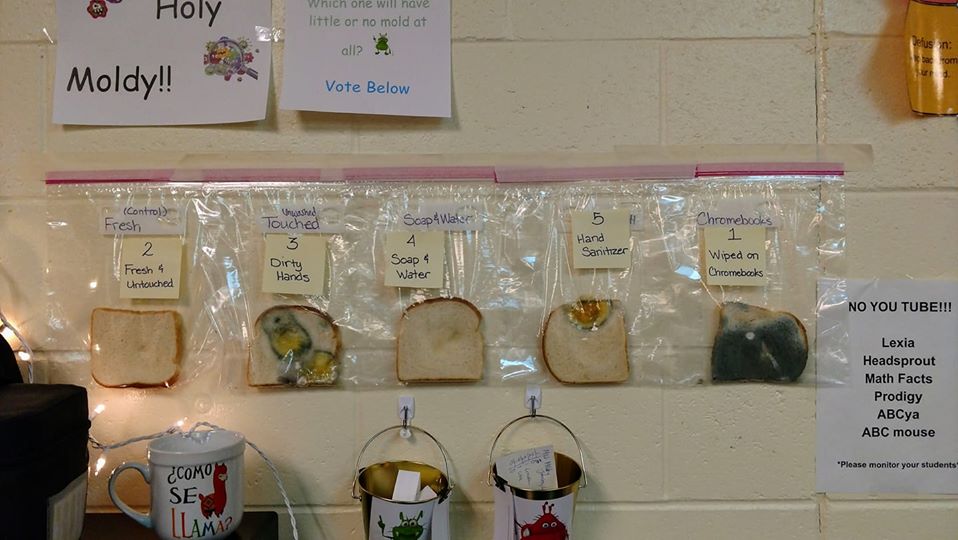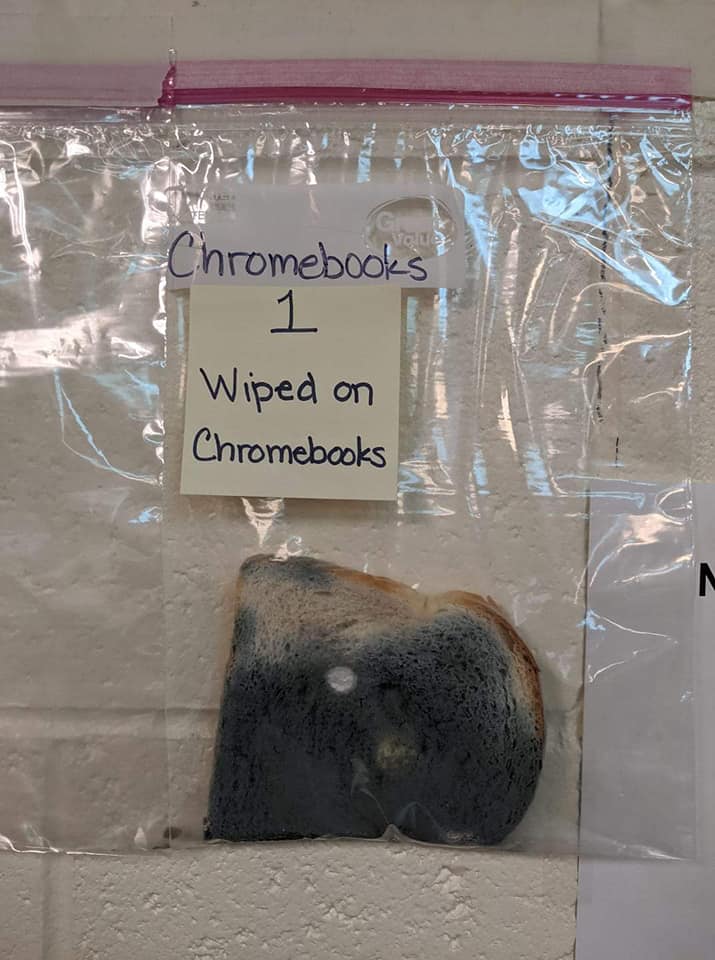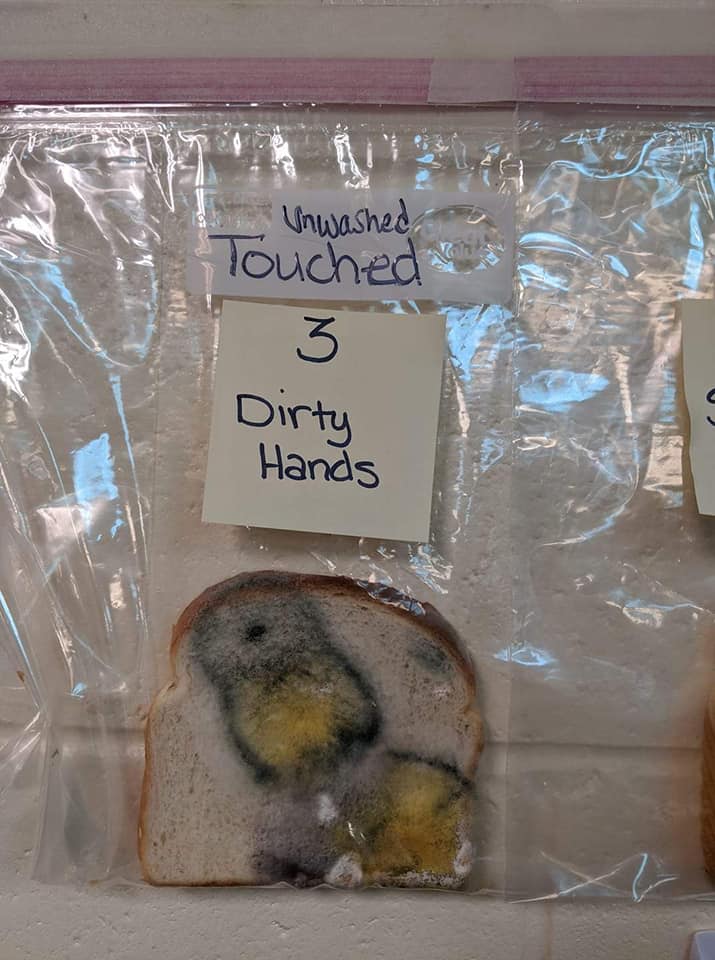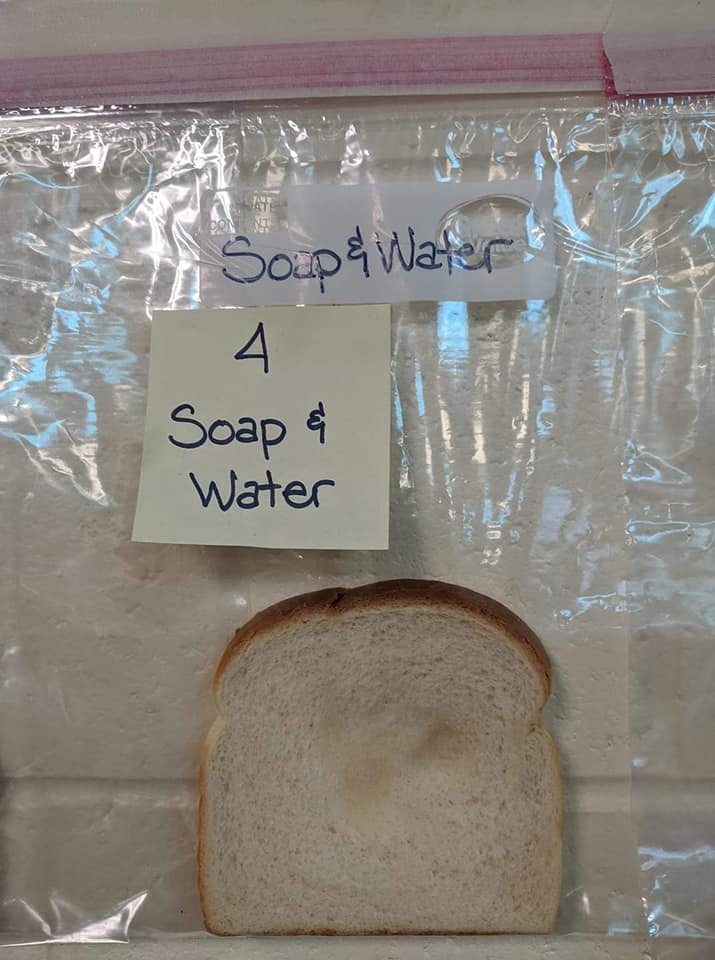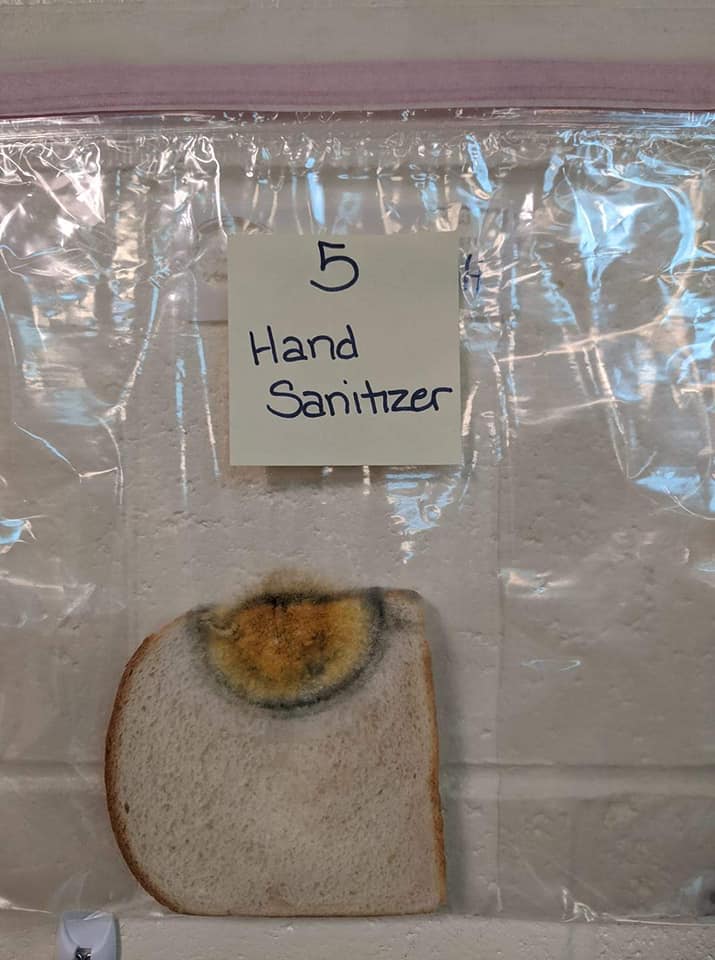Simple Class Project Shows Why Washing Hands Is More Effective Than Using Hand Sanitisers
CDC recommends using a hand sanitiser with at least 60% alcohol, only if soap and water are not available.
The coronavirus outbreak currently has the whole world on high alert.
One of the effective ways to keep safe is to practise basic hygiene such as wearing a face mask and washing your hands properly.
The importance of proper handwashing using soap and warm water was demonstrated by a primary school classroom in the United States.
The school teacher, Jaralee Annice Metcalf, said that they conducted an easy class experiment to show their students the importance of hand hygiene in November last year, in view of the then oncoming flu season.
"We took fresh bread and touched it," the teacher from the Discovery Elementary School in Idaho explained in a Facebook post that has been shared over 69,000 times.
The teacher asked her students to touch the slices of fresh bread at different levels of hand cleanliness to see what would happen to them in a month
The students exposed the pieces of bread to the following conditions:
- Untouched (which served as the control),
- Touched with unwashed hands,
- Touched with hands after using hand sanitiser,
- Touched with hands washed with warm water and plain soap, and
- Touched with the surface of a laptop.
They then sealed the pieces of bread into separate ziplock bags and waited.
After three to four weeks, they examined the results
The slice of bread that was wiped on their laptops turned very mouldy, followed by the one that was touched by unwashed dirty hands.
Meanwhile, the piece that was touched by hands after using hand sanitiser had a little mould growing on it.
Excluding the imprints made by the most likely excited students, the slice of bread touched with hands after washing with soap and water looked as clean as the untouched one.
"As somebody who is sick and tired of being sick and tired of being sick and tired - wash your hands! Remind your kids to wash their hands!" concluded Metcalf in the post.
"Hand sanitiser is not an alternative to washing hands! At all!" she also said.
The United States Centre for Disease Control and Prevention (CDC) also advocates for clean hands to avoid getting sick and spreading germs to others
According to the CDC, washing hands with soap and water reduces the amounts of all types of germs and chemicals on your hands.
"Many diseases and conditions are spread by not washing hands with soap and clean, running water," they say on their website.
Meanwhile, only if soap and water are not available, they recommend using a hand sanitiser with at least 60% alcohol.
"Alcohol-based hand sanitisers can quickly reduce the number of microbes on hands in some situations, but sanitisers do not eliminate all types of germs," they explain.
The World Health Organisation (WHO) also promotes washing your hands regularly and properly using these few steps:

